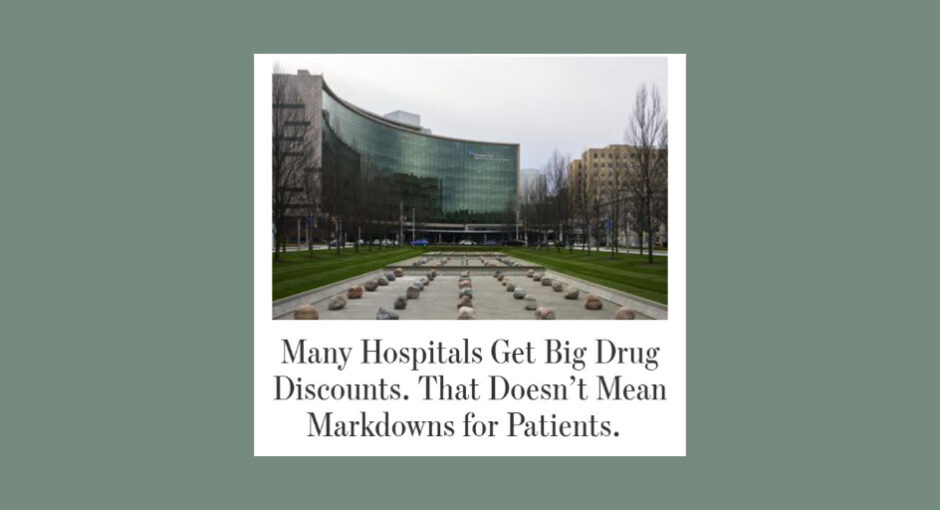A growing number of hospitals that do not qualify for 340B drug discounts as disproportionate share hospitals are enrolling instead under less demanding criteria for rural referral centers—including nationally prominent urban hospitals in metro Boston, Chicago, and Cleveland, The Wall Street Journal reported today in a long investigative article about hospital participation in 340B.
“Hospitals that meet the definition of rural referral centers are ramping up drug purchases under the program at a faster rate than any other type of 340B hospital, by more than 700% over five years, according to a HRSA report obtained through a Freedom of Information Act request,” the newspaper reported in the Dec. 20 article. “A Journal analysis found that most aren’t in rural areas.”
The newspaper said it found that “88 out of the 111 rural referral centers in the 340B program weren’t located in areas deemed rural by HRSA,” the newspaper said.
“More than four-fifths weren’t admitting enough low-income Medicare and Medicaid beneficiaries to qualify for 340B as a disproportionate share hospital, according to a Journal analysis of data from hospitals’ cost reports filed with Medicare,” the article continued.
To qualify for 340B as a DSH hospital, a hospital must have a Medicare DSH adjustment percentage greater than 11.75% for the most-recently filed cost report. This translates into a Medicaid inpatient population threshold of just under 30%. To qualify as a rural referral center, a hospital must have a Medicare DSH adjustment percentage greater than or equal to 8% for the most-recently filed cost report.
In addition, the newspaper said its analysis of federal 340B program data and census data shows “that hospitals often extend their 340B discounts to clinics in well-off communities, where they can charge privately insured patients more than those on Medicaid. Two-thirds of the sites outside the hospitals’ own census tracts were in neighborhoods where the median household income exceeded that in the hospitals’ own locations.”
“The data raise questions about the program’s growth and purpose,” the newspaper said. “In some cases, the program appears to be bolstering profits in well-off areas more than it is underwriting services in less-privileged neighborhoods.”
The article draws critical attention to some of the biggest and best-known 340B health systems and hospitals including the Cleveland Clinic, Northwestern Memorial Hospital in Chicago, Brigham & Women’s Hospital in Boston, and University of Michigan Health, Henry Ford Health, and Corewell Health in Michigan.
The Journal’s article appears three months after a New York Times investigation about how Ohio-based Bon Secours Mercy “used the poverty” of one of its hospitals in Richmond, Va., “to tap into” the 340B program. Bon Secours, the Times alleged, “has been slashing services” at Richmond Community Hospital “while investing in the city’s wealthier, white neighborhoods.”
The Times article continues to generate considerable negative commentary about the 340B program. The Journal article likely will amplify it. Rep. Brett Guthrie (R-Ky.), who is expected to chair the House Energy & Commerce health subcommittee in the new session of Congress, has stated his interest in holding hearings on the 340B program.


